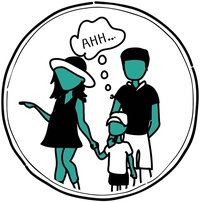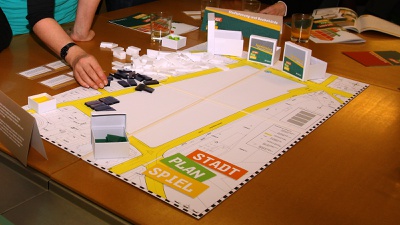YOUTH PROGRAMS
Building culture education begins with children
German psychologist and education expert Rikelf Rambow states: “Architecture is never just a house; it is the built expression of the cultural values of a society. In the best of cases, it can have tremendous impacts on the shaping of identity and stimulate an active interest in the fundamental questions of molding how we live.” Architecture is a reflection of society. It shows us how much value we attribute to living, to work space and educational buildings, to public space, and to traffic routes. And exactly these values and the malleability of our living environment are what young people need to learn about.
Architectural evaluation is not always dependent upon a knowledge base, it often happens subconsciously. This is why ORTE not only takes the education of young people to heart, but also aims to heighten their awareness. The ORTE association strives to use unmistakable language in its educational work, language that approaches the actual building culture experience. ORTE would like to be an echo space for children and youths, a space in which they can make their living environments – whether this be the city, school, their own room, etc. – visible and learn to help shape them. They can research about a place of their choice or “let it tell its story”, paint it in a picture, ascribe an atmosphere to it, or design for a new future – and then can reflect upon all of this together with architecture educators.
But it is not always necessary to have special events just for young people. Many events in the ORTE program are suitable for children and youths, for example, the WALKtalks (GEHspräche). Bring your children with you to any ORTE event marked with the family-friendly symbol!

The nationwide “>technology moves< week allows students to take a closer look at technical and planning careers each year in November. Teachers in Lower Austrian schools can book 100-minute workshops with ORTE for the 8th and 9th grades on the following career areas:
This game helps children learn about the framework conditions and regulations of urban planning and lets them find solutions to a concrete planning task while playing different roles. Not only are urban development processes simulated, the intensions of the responsible parties are also made transparent and empathy for the impacted parties is awakened.



